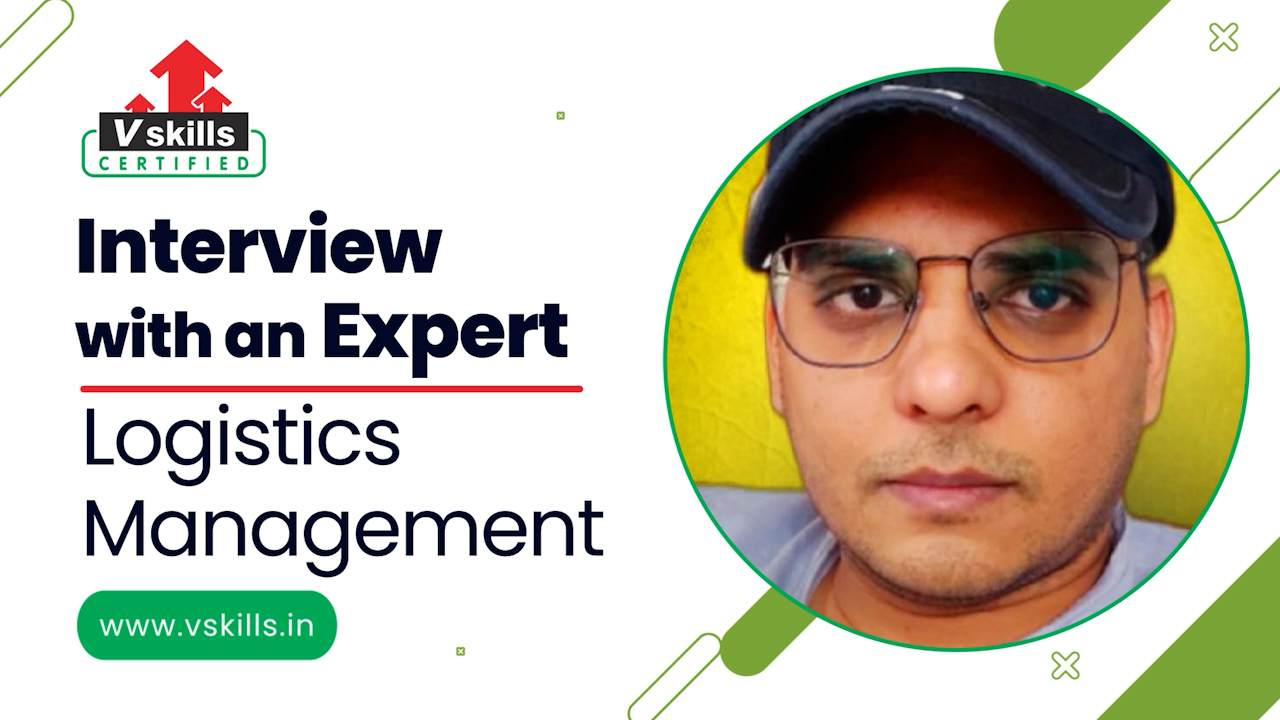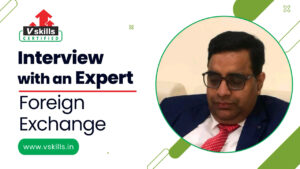Before we begin to understand more about the field of Logistics and what it takes to become a successful Logistics Professional, let us first quickly look at the basics of Logistics and SCM. In general, Logistics focuses on the movement and storage of items in the supply chain. Whereas, Supply chain management (SCM) covers comprehensive tasks like coordinating between partners in this network handling sourcing, manufacturing, transporting, storing and selling.
Logistics and SCM Roles and Responsibilities
Some of the important roles and responsibilities include –
- Creating organisational supply chain strategy
- Analyzing data for process improvement
- Evaluating and reporting on KPIs
- Monitoring logistics to ensure smooth functioning
- Maintaining supply chain inventory and records
- Finding cost-effective solutions for supply chain processes
- Developing coordinated plans for business growth
- Developing and implementing safety guidelines
- Ensuring supply chain processes meet legal requirements and standards
- Negotiating with suppliers and vendors to crack more profitable deals
Let’s now listen to the leading industry expert Mr. Dheeraj Gupta, he has 15 years of experience in the logistics management domain and has currently worked as the lead logistics specialist in GE Renewal for the last 2 years. He has multidisciplinary experience in ABV in its power division at Vadodara and over 9+ years of experience in L&T under project Logistics of Oman, Malaysia, and the kingdom of Saudi Arabia. He also has experience in warehouse operations, General Cargo, ODCs, transportation, logistic strategy and safety. We seek his guidance to learn more about logistics management as a subject and as a profession.
Q1. What interests you in getting into the field of logistics and supply chain management?
Answer: After finishing my education in mechanical engineering I started my career with Larsen and Toubro in 2010. I was placed through campus placement there and then I joined them in their hydrocarbon business, that time it was called refinery sq. After 1 year my training got completed in the design department and engineering. Then I moved to supply chain management out of my interest. I chose this career while pursuing MBA according to my work. It interests me to manage the things which are moving, so I decided to choose my career in supply chain management and logistics management.
What got me into logistics was that Logistics challenges you every day, project logistics is something which is not happening on daily basis. It gives the opportunity to interact with each and every function in logistics. In logistics, there is an engineering department, project management department, and finance department. Therefore, you have to carry the multi-dimensional approach. your interpersonal skills also get nurtured since every decision you make today is going to impact your project schedule, sales, and business revenue. It does not restrict you with geographical boundaries.
Q2. What skills do you think are needed to be successful in logistics and supply chain management?
Answer: When we come to specific skills, the first and the foremost thing required is analytical skills because when you have to make a decision, many facts and figures need to be figured out. Interpersonal skills are also required for the same. it will include collaborating with different departments where interpersonal skills are required. Adaptability to change is another major factor required here. How things worked 4 years ago, does not work the same way. It also requires people to work on the ground to meet the people who are carrying out the work of logistic operations. Understanding their problems, and talking to vendors, and brokers so working on the ground skills is also required.
Q3. We are observing horizontal collaboration in last-mile delivery, but it is affected by inconsistencies. How can a higher level of efficiency be achieved?
Answer: We are facing the same issue since the remote locations are creating challenges for the last-mile delivery. Logistics is an unorganized sector, only 5-7% of logistics players are utilizing their IT resources efficiently. Infrastructural issues are also there. Sometimes approachable roads are not available, for last-mile delivery vehicles are not available. Even the market does not seem to fix the concerned issues. Federal issues are also there since there are interstate movements, and there are different regulatory requirements. What we do to overcome this is, collaborate with local vendors over there i.e. local logistics service providers. We try to collaborate in such a way that movements happen smoothly to cope with last-mile challenges. If federal and infrastructural-related issues get resolved things could be carried out efficiently.
Q4. Just like individual customers, industrial customers expect to get shipments faster, flexibly, and with more transparency at a competitive price. How do you handle such requirements?
Answer: Logistics is one of the most unorganized sectors in India. There is still a reluctance to adopt IT, still, many service providers do not use IT apps. It is required for them to use IT-enabled platforms for real-time monitoring. There are various applications available like mytruck which can trace the exact location of the vehicle, how much time it will take, what is the speed etc.
Q5. Logistics is currently confronting immense change in terms of digitalization and evolving customer expectations. This brings both risk and opportunity. What is your opinion about it?
Answer: About 10-15 years ago, the support from statutory bodies was not available, but in the last 7-8 years it is getting improved. Getting permissions for doing movements is getting easier now, the type of permission which was taking 45-50 days is now reduced to only 7-8 days. Along with opportunities, the risk is also associated. Sometimes, logistics needs huge capital investment, even if you mobilize only 1 vehicle, the cost is around 15-20 lakhs rupees. It can be mitigated by using IT resources, technology and using infrastructure in a better way.
Q6. Technology is changing every aspect of how logistics companies operate. Do you think digital fitness is a prerequisite for success in this sector?
Answer: It is impacting very deeply. Last year amazon also started taking delivery addresses only, if you don’t want to purchase, you can still courier it. They have developed their infrastructure available in the country. They have set up their delivery offices everywhere. Apart from their home deliveries, they are taking orders from their customers and courier companies as well. That is how they are managing their infrastructure.
Q7. What is the biggest challenge for building digital operations capabilities in a company?
Answer: Major challenges include a low literacy rate amongst the operators, drivers and people who are working on the ground. People are too much reluctant in learning new things. If I talk about my experience in the previous organization we were using an app called mytrucks, but here the drivers are not ready to download the apps. Secondly, driving and delivering is considered a low profile job in India. It is the last option for the people who are not getting jobs, this mindset needs to get changed. Talking about infrastructural issues, I think they will get resolved in 4-5 years.
Q8. What are the key technologies you think are really going to make an impact to handle the technical advancement?
Answer: Using IOT internet, AI, warehousing automation, and robotics even if you go to any amazon fulfilment center, you will find that their boxes are being managed by robots, which reduces the time and therefore things are available must faster. Now every company is focusing on faster delivery like in 10-30 mins. They are also controlling the information flow apart from the physical flow.
Q9. How do you stay up to date with industry trends and best practices?
Answer: Firstly, you need to stay connected with the market and be available with your business associates, partners, service providers etc. Having connections with digital media also matters a lot, learn about the new things happening, and try to implement them with your best practices. When I initiated taking up a project on warehouses while completing it I learned many new things.
Q10. What will the logistics marketplace look like in the coming five years?
Answer: The gap in accessibility which was a major issue, not everyone was able to send their shipments, go to the broker, transformer, or transport area has improved a lot over a period of time. Now, you can contact the service providers on phone, they will come to your home. They are also offering a platform to choose the service as per your convenience by putting the dimensions of the shipments, destination pin code, and pickup pin code. Major accessibility is the major change which I am looking for in the next 5 years. Apart from this digitally enabled, elimination of middlemen like brokers, and associations will also help a lot.
Q11. What is your advice for people who are looking at building a career in this field?
Answer: It is a very interesting field, there are so many new things to be learnt. Today the manufacturing cost and engineering cost are almost the same for all the companies. They can clear the value in supply chain management and logistics management only. If any company is having efficient supply chain management, their product cost will be less. No. of raw materials suppliers is the same for every company. The company which have more logistic competency will have a more cost impact on their product. So they can sustain their product in a better way while working on their supply chain. Therefore, students must explore this domain as it provides so many improvements and scope.




